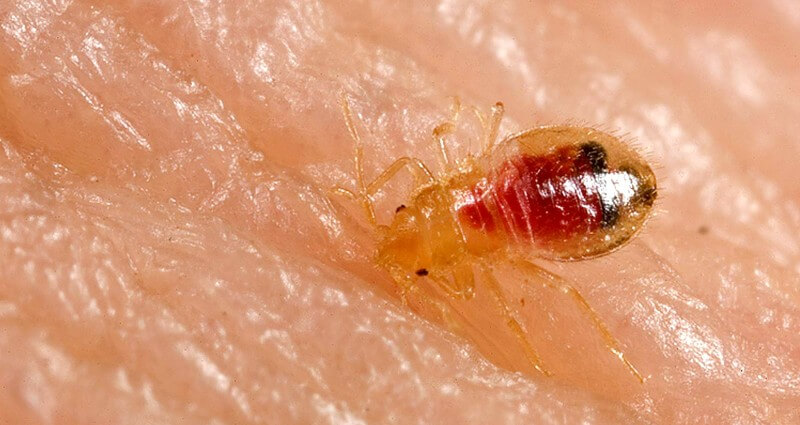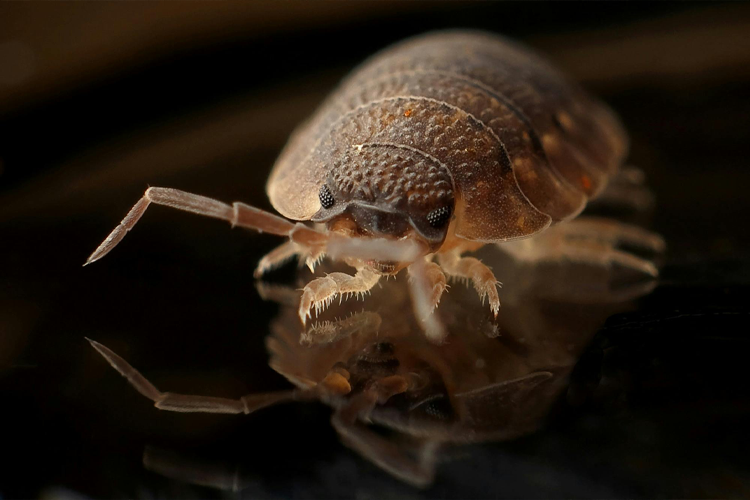A Breakdown of the Various Kinds Of Pest Control Solutions
In the realm of bug control, a wide range of techniques exist to deal with the existence and address of unwanted creatures. As we navigate through the diverse landscape of pest control solutions, understanding the ins and outs of each technique becomes extremely important in determining the most effective training course of action.
Chemical Pesticides
Chemical chemicals are commonly utilized in insect control to efficiently remove a large range of pests and various other insects. These chemicals work by targeting the nerve system of the insects, interrupting their typical functions, and ultimately causing their death. Making use of chemical pesticides has been a staple in the parasite control market for years due to their effectiveness and fast results.

Nevertheless, it is important to utilize chemical pesticides with caution due to their prospective damaging impacts on the environment and non-target types. Inappropriate application or overuse of these pesticides can result in air pollution, injury to beneficial pests, and resistance development in parasite populations. Consequently, it is vital to follow safety guidelines and regulations when making use of chemical pesticides for parasite control.
Biological Control Approaches
Thinking about the prospective ecological influences and threats linked with chemical pesticides, biological control methods offer an even more lasting technique to managing insect populaces. Biological control entails using natural enemies, such as pathogens, predators, and parasites, to suppress parasite populations. This technique is usually a lot more targeted, impacting only the specific insect varieties while minimizing damage to advantageous pests, human beings, and the environment.

One benefit of organic control is its long-lasting efficiency. As soon as established, natural adversaries can help regulate pest populations constantly without the demand for repeated applications of pesticides. In addition, organic control is usually much more economical and can aid decrease pesticide resistance in bug populations over time. In general, biological control techniques provide a lasting and environmentally friendly solution to pest monitoring.

Mechanical Bug Control
Mechanical pest control entails the physical manipulation or elimination of parasites to manage their populaces efficiently. This approach is typically used in combination with other insect control approaches for comprehensive insect administration. One usual example of mechanical bug control is using traps to capture pests or rodents. These traps can be established in critical places where bugs are known to dwell, assisting to minimize their numbers.
Another mechanical strategy is using obstacles such as fences, webs, or read here screens to obstruct pests from getting in particular locations. By physically stopping pests from accessing a place, the likelihood of invasions or damages can be substantially reduced. Furthermore, hand-operated methods like handpicking bugs off plants or structures can be reliable for smaller-scale infestations.
While mechanical bug control approaches can be labor-intensive, they provide a non-chemical option that can be eco-friendly and lasting. By targeting bugs straight, mechanical control techniques can help maintain parasite populaces in check without relying upon pesticides.
All-natural Solutions
Utilizing natural treatments for parasite control offers a environment-friendly and lasting strategy to managing insect populaces without turning to chemical treatments. All-natural solutions involve using substances originated from plants, minerals, or various other normally taking place resources to hinder or eliminate pests. For instance, growing particular natural herbs like basil, mint, or lavender around your home can drive away insects due to their strong scents. Diatomaceous earth, a powder made from fossilized algae, can be used to battle pests like ants, cockroaches, and bed bugs by dehydrating their exoskeletons. garden pest control
Furthermore, necessary oils such as tea tree oil or neem oil have insecticidal buildings that can properly manage insects while being secure for the setting. One more natural treatment is presenting beneficial bugs like ladybugs or praying mantises to your garden to exploit damaging parasites. By incorporating these all-natural services right into bug administration approaches, individuals can lower their dependence on synthetic chemicals and advertise a healthier, much more balanced community.
Integrated Insect Management
Integrated Bug Monitoring (IPM) is a thorough method that incorporates various approaches to efficiently regulate pest populaces while lessening risks to human health and wellness and the environment. IPM entails the combination of several parasite control methods such as organic control, environment adjustment, alteration of cultural practices, and making use of immune crop selections. By utilizing a combination of these techniques, IPM aims to reduce dependence on browse around this site chemical pesticides, which can have unfavorable influence on communities and human health and wellness.
One trick element of IPM is the focus on prevention. By applying measures to stop insect infestations prior to they take place, such as preserving appropriate cleanliness and securing access points, the need for responsive insect control actions is lessened. Monitoring and regular evaluations play a crucial role in IPM, permitting for early discovery of insect problems and timely intervention.
Verdict
In final thought, the different types of bug control solutions use a variety of choices for properly managing pest infestations. Biological control techniques utilize natural killers to regulate pests. Integrated Insect Monitoring incorporates numerous strategies for an alternative approach to pest control.
Chemical pesticides are generally made use of in insect control to efficiently eliminate a vast variety of bugs and various other bugs.Mechanical bug control involves the physical adjustment or removal of pests to manage their populations properly (Kings exterminator cincinnati).Using all-natural treatments for insect control uses a green and sustainable technique to managing pest populations without resorting to chemical interventions.Integrated Pest Administration (IPM) is a comprehensive method that integrates numerous techniques to successfully control pest populaces while minimizing dangers to human health and wellness and the environment.In verdict, the different kinds of bug control options use an array of options for efficiently managing pest problems
Comments on “Expert Kings Pest Control Cincinnati: Your Trusted Exterminators”